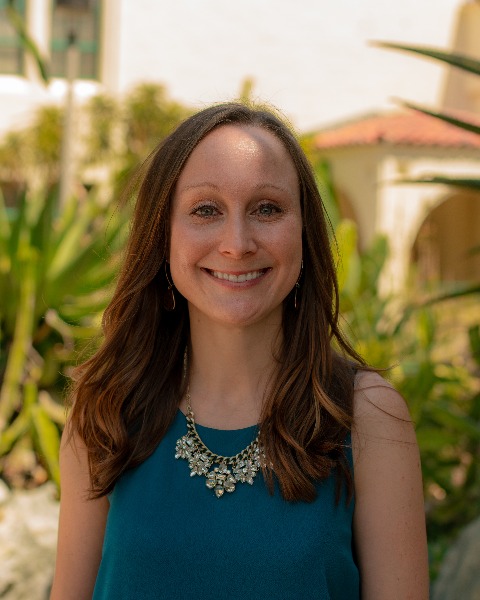Category: Dissemination & Implementation Science
Symposium 31 - The Application of Pragmatic Methods to Develop, Tailor, and Adapt Implementation Strategies
Level of Familiarity: Basic to Moderate
Recommended Readings: Lyon, A. R., Coifman, J., Cook, H., McRee, E., Liu, F. F., Ludwig, K., Dorsey, S., Koerner, K., Munson, S. A., & McCauley, E. (2021). The Cognitive Walkthrough for Implementation Strategies (CWIS): a pragmatic method for assessing implementation strategy usability. Implementation Science Communications, 2(1), 1–16. https://doi.org/10.1186/s43058-021-00183-0,
Powell, B. J., Fernandez, M. E., Williams, N. J., Aarons, G. A., Beidas, R. S., Lewis, C. C., McHugh, S. M., & Weiner, B. J. (2019). Enhancing the impact of implementation strategies in healthcare: A research agenda. Frontiers in Public Health, 7(JAN), 1–9. https://doi.org/10.3389/fpubh.2019.00003
, Gilmartin, H., Lawrence, E., Leonard, C., McCreight, M., Kelley, L., Lippmann, B., ... & Burke, R. E. (2019). Brainwriting premortem: a novel focus group method to engage stakeholders and identify preimplementation barriers. Journal of nursing care quality, 34(2), 94., ,-

Kelsey Dickson, Ph.D. (she/her/hers)
Assistant Professor
San Diego State University
San Diego, California -
SD
Shannon Dorsey, PhD (she/her/hers)
Professor Department of Psychology
University of Washington
Seattle, Washington -

Kelsey Dickson, Ph.D. (she/her/hers)
Assistant Professor
San Diego State University
San Diego, California -
NS
Nicole Stadnick, M.P.H., Ph.D. (she/her/hers)
Assistant Professor
University of California San Diego
La Jolla, California -
VC
Vaughan Collins, MSW (they/them/theirs)
Research Coordinator
University of Washington School of Medicine
Seattle, Washington -
YM
Yesenia Mejia, Ph.D. (she/her/hers)
University of California San Diego
La Jolla, California
Chair(s)
Discussant(s)
Presenter(s)
The need for implementation strategies—defined as discrete or multifaceted techniques to enhance the translation of new practices to community settings—is well documented. Implementation strategy development and tailoring for specific contexts and key determinants is a growing priority within implementation research (Powell et al., 2019). Fortunately, there have been increasing efforts to develop pragmatic and effective methods to inform such design and tailoring, including participatory methods assessing strategy usability and fit. This symposium presents research applying pragmatic, community participatory methods to guide implementation strategy adaptation and redesign processes to maximize implementation success across community settings.
Brainwriting premortem is a novel, participatory approach that combines individual brainstorming with reflection to identify and address key implementation failures prior to program launch. The first project (Stadnick et al.,) describes the application of brainwriting premortem to iteratively refine a COVID-19 testing program at a federally qualified health center.
Similar to brainwriting premortem, the Cognitive Walkthrough for Implementation Strategies (CWIS; Lyon et al., 20211) approach engages stakeholders to assess the utility and alignment of implementation strategies with the needs and constraints of the intended delivery context to inform strategy adaptation and redesign. The second project (Dickson et al.,) describes the application of CWIS as part of an iterative, community engaged redesign of a multifaceted implementation toolkit targeting the selection and adoption of autism evidence-based practices (EBPs) for use in schools. The third project (Collins et al.,) also describes the application of the CWIS to inform the redesign of a multifaceted implementation strategy targeting implementation leadership and organization change for use in schools.
Continuing the focus on implementation leadership, the final project (Mejia et al.,) describes the process of expanding an implementation leadership strategy entitled the TEAMS Leadership Institute (TLI; Brookman-Frazee & Stahmer) to create a new EBP leadership institute focused on building absorptive capacity for utilizing research literature to select and implement EBPs in schools and mental health clinics.
These projects add to the limited literature regarding the application and utility of novel, pragmatic methods for designing and tailoring implementation strategies. With extensive expertise in implementation strategy development and testing in community settings, Dr. Shannon Dorsey (discussant) will provide further context regarding the implication of these papers and provide recommendations for future work utilizing such methods to promote successful innovation installment in the community.
Learning Objectives:
- Present data describing the application of pragmatic methods for developing and tailoring implementation strategies.
- Explore the impact of utilizing pragmatic implementation science methods on the implementation process.
- Provide recommendations for improving the use and impact of implementation strategies in evidence-based practice translation efforts.
- Increased familiarity with pragmatic, community-partnered implementation methods.
- Increased understanding of the need and methods for tailoring implementation methods.

